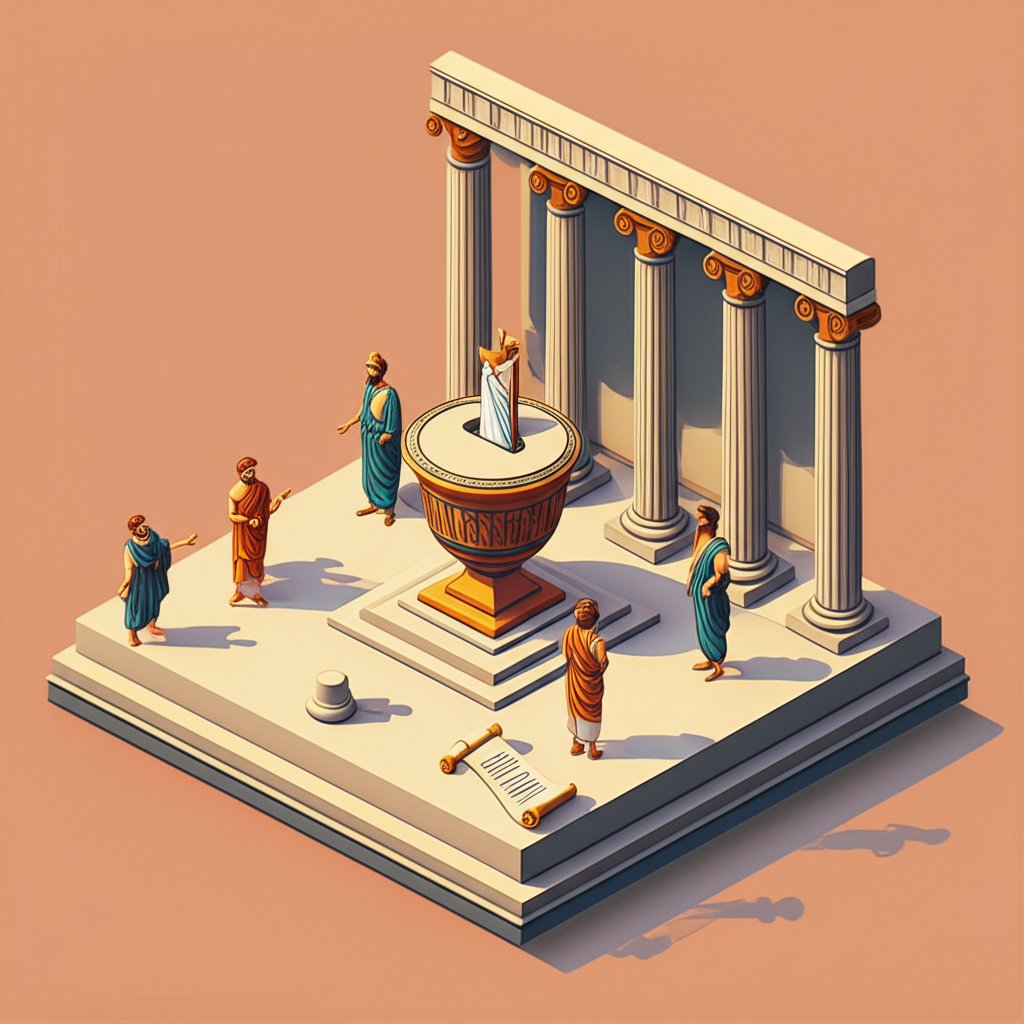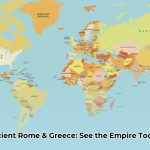Step into the cradle of Western civilization, where a revolutionary political experiment unfolded. Ancient Athens, a powerhouse among Greek city-states, didn’t just give us philosophy and drama; it pioneered a form of governance that continues to inspire and inform political systems worldwide. If you’ve ever wondered what type of government did Athens have, how it functioned, or what kind of government did Athens have that set it apart, you’re about to embark on a deep dive into one of history’s most fascinating political structures.
This article goes beyond simple facts about Athens government to truly uncover the intricate workings, key players, and enduring legacy of Athenian democracy. We’ll explore its evolution, its unique characteristics, its undeniable limitations, and how these ancient Greece government facts shaped not only Athens but the very concept of self-rule. Get ready to understand what was the government like in Athens in unparalleled detail.
The Evolution of Athenian Governance: From Monarchy to Democracy
Before Athens became synonymous with democracy, its governance, like many early Greek city-states, underwent significant transformations. Understanding this journey is key to grasping the unique nature of its eventual democratic system.
Initially, Athens was likely ruled by kings, a monarchy that gradually transitioned into an aristocracy, where power rested in the hands of a few wealthy, noble families (the Eupatridae). These aristocrats held the most important offices, controlling land and justice. This period, characterized by social and economic inequality, laid the groundwork for the reforms that would eventually usher in democracy.
Key Reformers Paving the Way
The path to democracy was not a smooth one, marked by periods of social unrest and the efforts of significant reformers:
- Draco (c. 621 BCE): Credited with Athens’ first written law code. While notoriously harsh (hence “draconian”), it was a crucial step towards rule of law, applying equally (in theory) to all citizens, rather than arbitrary aristocratic judgment. This was an early, foundational fact about Athens government – the codification of laws.
- Solon (c. 594 BCE): Often seen as the father of Athenian democracy, Solon’s reforms were extensive. He alleviated debt slavery, reclassified citizens based on wealth rather than birth (opening up political participation to a broader segment), and established a rudimentary court system and a Council of 400 (Boule). While not fully democratic, his efforts significantly broadened political involvement and set the stage for further democratic advancements, laying a critical foundation for what type of government did Athens have.
- Cleisthenes (c. 508 BCE): After a period of tyranny, Cleisthenes enacted reforms that truly solidified Athenian democracy. He reorganized the citizen body into 10 new tribes (demes), breaking the power of traditional aristocratic clans and fostering a more unified civic identity. He introduced the Council of 500 (Boule) chosen by lot, and strengthened the Ekklesia (Assembly). His reforms are widely considered the moment what kind of government did Athens have definitively became a democracy.
These early reforms illustrate the dynamic nature of ancient Greece government facts, showing a society actively grappling with questions of power, justice, and citizenship.
Core Pillars of Athenian Democracy: What Was the Government Like in Athens?
At its zenith, particularly during the 5th century BCE, Athenian democracy was a direct democracy, a system markedly different from most modern representative democracies. Citizens directly participated in decision-making, rather than electing representatives to do so on their behalf. This was a defining characteristic of what type of government did Athens have.
The core of Athenian governance revolved around three main institutions:
The Ekklesia (Assembly of the People)
This was the sovereign governing body of Athens. All adult male citizens (estimated at 30,000-60,000 during its peak) had the right to attend and vote. Meetings were held regularly, typically 40 times a year on Pnyx Hill.
- Direct Participation: Any citizen could speak, propose laws, or vote on resolutions concerning war and peace, foreign policy, public works, and legislative matters. This direct involvement is a key fact about Athens government.
- Majority Rule: Decisions were made by a simple majority vote, often by show of hands.
- Supreme Authority: The Ekklesia held ultimate authority, embodying the principle of “rule by the people” – the literal meaning of demokratia.
The Boule (Council of 500)
The Boule acted as the steering committee of the Ekklesia, preparing the agenda for Assembly meetings and managing administrative functions.
- Composition: Composed of 500 citizens, 50 from each of the 10 tribes. Members served for one year and could only serve twice in their lifetime, but not consecutively.
- Selection by Lot: Members were chosen by lot (sortition) from eligible citizens, ensuring a broad representation and preventing any one faction from dominating. This unique selection method is a crucial ancient Greece government fact.
- Daily Governance: The Boule oversaw magistrates, supervised public finances, and handled day-to-day government affairs. A subgroup, the Prytaneis, rotated daily as presiding officers, ensuring that hundreds of citizens gained direct experience in governing.
The Dikasteria (Popular Courts)
Justice in Athens was also administered by citizens, reflecting the deep commitment to popular sovereignty.
- Jury System: Juries (dikastai) were massive, typically consisting of 501, 1001, or even more citizens, chosen by lot each day from a pool of thousands.
- Citizen Judges: There were no professional judges or lawyers in the modern sense. Citizens argued their own cases or had friends speak for them.
- Final Decisions: Jurors voted directly on guilt or innocence and, if guilty, often on the penalty. Their decisions were final, without appeal. This emphasized the people’s ultimate control over all aspects of public life, defining what was the government like in Athens.
Beyond the Ballot: The Lottery System and Athenian Officials
One of the most distinctive and illuminating facts about Athens government was its widespread use of sortition, or selection by lot, for most public offices. While modern democracies rely on elections, Athenians viewed elections with suspicion, seeing them as potentially leading to oligarchy (rule by the few) or demagoguery, as only the wealthy or charismatic might get elected.
Why Sortition?
- Preventing Corruption and Factionalism: Random selection minimized the influence of money, family, and political maneuvering. It ensured most citizens had an equal chance to serve, theoretically reducing opportunities for bribery or the formation of entrenched political classes. This helped to truly demonstrate what type of government did Athens have for its citizens.
- Promoting Inclusivity: By making eligibility for office broad and selection random, Athens aimed for a truly inclusive government where power was distributed amongst its citizens, rather than concentrated in an elite.
- Civic Duty and Education: Serving in office was considered a civic duty and a form of political education. Many citizens would likely serve in some capacity during their lifetime, gaining practical experience in governance.
How it Worked
Citizens who wished to serve in a specific office would register, and then names would be drawn randomly. For highly specialized roles, such as military generals (strategoi), elections were still used, as specific expertise was deemed necessary. This blend of sortition and election highlights the pragmatic aspects of what kind of government did Athens have.
The lottery system underscores the Athenian belief that all citizens were theoretically capable of governing and that direct experience in public office was vital for a healthy democracy. It’s a fascinating example of how ancient Greece government facts diverged significantly from modern democratic practices.
The Limits of Liberty: Who Was Excluded from Athens’ Government?
While revolutionary for its time, Athenian democracy was far from universally inclusive by today’s standards. Understanding its limitations is crucial for a complete picture of what type of government did Athens have.
The Strict Definition of “Citizen”
Only free, adult males born of Athenian parents (both mother and father after 451 BCE) were considered citizens. This definition drastically narrowed the pool of participants, meaning a significant majority of the population had no political rights.
- Women: Athenian women, regardless of their social standing or wealth, were entirely excluded from political life. They could not vote, hold office, or participate in the Assembly or courts. Their role was largely confined to the household.
- Slaves: Athens relied heavily on slave labor. Estimates suggest slaves constituted a large portion of the population (perhaps one-third or more). They had no political rights or personal freedoms.
- Metics (Foreign Residents): Foreigners living in Athens, even those who had resided there for generations and contributed economically and culturally, were also excluded from citizenship and political participation. They paid taxes and could serve in the military but had no political voice.
Impact of Exclusions
This exclusionary nature meant that while direct democracy was practiced, it was a democracy for a distinct minority. The “people” (demos) who ruled represented only 10-20% of the total population of Attica. Philosophers like Plato, a critic of Athenian democracy, argued that this system could lead to rule by the uninformed masses and demagoguery, pointing to the trial and execution of Socrates as a prime example of its flaws. These criticisms and limitations are vital facts about Athens government that add complexity to its legacy.
The Golden Age and its Challenges: A Look at Periclean Athens

The mid-5th century BCE, often referred to as Athens’ Golden Age, saw Athenian democracy reach its peak under the leadership of Pericles. During this period, Athens flourished culturally, economically, and politically, becoming a dominant naval power.
Pericles and Democratic Ideals
Pericles championed democratic ideals, famously articulating in his Funeral Oration (recorded by Thucydides) the core values of Athenian democracy: equality before the law, meritocracy, and active participation in public life. He famously stated, “Our constitution is called a democracy because power is in the hands not of a minority but of the whole people.” This period cemented the image of ancient Greece government facts as a beacon of democratic thought.
Demagoguery and External Threats
However, even during its golden age, Athenian democracy faced internal challenges. The system was vulnerable to demagoguery, where charismatic speakers could sway public opinion, sometimes leading to impulsive or ill-advised decisions. The Peloponnesian War against Sparta (431-404 BCE) brutally exposed these vulnerabilities. Prolonged conflict, internal strife, and the devastating plague tested the city’s resolve and ultimately led to its downfall, marking a tragic chapter in what was the government like in Athens.
Despite these struggles, the resilience of Athenian democratic institutions, even in the face of immense pressure, remains a testament to the power of citizen governance.
Lasting Legacy: Ancient Greece Government Facts and Their Modern Influence
The facts about Athens government resonate profoundly today, influencing political thought and practice across millennia. While no modern nation precisely replicates the direct democracy of Athens, its foundational principles continue to shape our understanding of governance.
Core Principles Enduring
- Rule of Law: The idea that laws, not individuals, govern society, a concept emerging even from Draco’s harsh code.
- Citizen Participation: Athens demonstrated the power and possibility of citizens directly shaping their society, inspiring concepts of civic duty and engagement.
- Equality Before the Law: While limited to citizens, the principle that all citizens should be treated equally under the law was a radical departure for its era.
- Public Debate and Deliberation: The Ekklesia and the courts fostered a culture of open discussion and reasoned argument as the basis for collective decisions.
From Direct to Representative Democracy
Modern democracies, with their vast populations and complex societies, predominantly adopt representative models. Citizens elect individuals to represent their interests in legislative bodies. However, the spirit of Athenian direct participation can be seen in:
- Referendums and Initiatives: Direct votes on specific issues, akin to the Ekklesia.
- Jury Duty: The continuation of citizen juries as a cornerstone of justice systems.
- Public Hearings and Town Hall Meetings: Opportunities for citizens to directly voice opinions to their representatives.
The Athenian experiment, with all its brilliance and flaws, laid a crucial cornerstone for the development of democratic thought. It provides a rich historical context for what type of government did Athens have, reminding us of the enduring questions surrounding power, participation, and justice that societies continue to grapple with. Understanding what kind of government did Athens have is not merely a historical exercise; it’s a journey to the very roots of our political landscape.
Conclusion
Athens undeniably pioneered a revolutionary form of governance. What type of government did Athens have? It was a direct democracy, a system where eligible citizens actively participated in the legislative, executive, and judicial processes, rather than electing representatives. This structure, detailed by numerous facts about Athens government, profoundly shaped its society.
Through institutions like the Ekklesia (Assembly), Boule (Council of 500), and Dikasteria (Courts), and a unique lottery system for selecting officials, what kind of government did Athens have was unlike any other. It valued broad citizen engagement over elected elites. While this “rule by the people” was groundbreaking, it was also exclusionary, limiting political rights to only a fraction of its population – free, adult male citizens.
Despite its limitations, the essence of what was the government like in Athens – its commitment to civic duty, the rule of law, and direct citizen involvement – has cemented its legacy. These ancient Greece government facts remain a cornerstone for understanding the evolution of democratic ideals and continue to inspire debates on the nature of participation, equality, and justice in our own political systems today.
FAQ

Q1: What type of government did Athens primarily have during its Golden Age?
A: During its Golden Age (roughly 5th century BCE), Athens primarily had a direct democracy. This meant that eligible citizens directly participated in making laws and decisions, rather than electing representatives to do so.
Q2: What were the three main institutions of Athenian democracy?
A: The three main institutions were:
Q3: How were most government officials chosen in ancient Athens?
A: Most government officials in Athens were chosen by lot (sortition), a random selection process from a pool of eligible citizens. This was intended to prevent corruption, ensure broad participation, and distribute power widely. Military generals were an exception, as they were elected.
Q4: Who was considered a full citizen in Athenian democracy?
A: A full citizen in Athenian democracy was a free, adult male born of Athenian parents. Women, slaves, and foreign residents (metics) were excluded from citizenship and political participation.
Q5: What was the significance of Solon and Cleisthenes in the development of Athenian government?
A: Solon laid crucial foundations for democracy by reforming laws, alleviating debt slavery, and expanding political participation based on wealth rather than birth. Cleisthenes is widely credited with establishing full democracy by reorganizing the citizen body into tribes, strengthening the Assembly, and introducing the Council of 500 chosen by lot, thereby breaking aristocratic power and creating a more inclusive political structure for citizens.
Q6: What were some criticisms or limitations of Athenian democracy?
A: Criticisms and limitations included:
Q7: How do modern democratic systems differ from ancient Athenian democracy?
A: Modern democracies are predominantly representative democracies, where citizens elect officials to represent them in government. Ancient Athenian democracy was a direct democracy, where citizens directly participated in decision-making. Modern systems also typically grant suffrage to a much broader population (including women and various ethnic groups) and rely on professional civil services and judicial systems, unlike Athens’ citizen-led approach to most offices.










